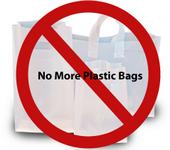My power and persuasion is being for, a cleaner, greener earth. Instead of fighting against, I am for living in a beautiful and harmonious, clean, world. Individuals can easily take matters into there own hands and change the world. In my own circle of friends, family and fans, I am trying to reach people, on a personal level to embrace change. This change often needs to come from within first, a spark and desire, an awakening ignites the individual to see the important role they can play, and the profound effect the small changes they make will have. Step by step, little by little, we can alter the face of the earth for the better, there is something everyone can do. To start, find something small, something easy. From there, like dominos, you will find another way, and another, until your life, within and without is so totally transformed. You will then be joyful knowing you are contributing to the collective creation of a better, even more beautiful world!
Know The Facts: Consumption
- It is estimated that each year 500 billion to 1 trillion plastic bags are consumed worldwide. Billions of these bags end up as litter each year. Supermarkets began offering plastic grocery bags in 1977 as an alternative to paper bags. By 1996, four out of every five grocery bags used were plastic. According to The Wall Street Journal, the U.S. goes through about 100 billion plastic shopping bags annually. (The estimated cost to retailers is $4 billion)- According to the industry publication Modern Plastics, Taiwan consumes 20 billion bags a year—900 per person.
- According to Australia’s Department of Environment, Australians consume 6.9 billion plastic bags each year—326 per person. An estimated .7% or 49,600,000 end up as litter each year.
- According to the American Forest and Paper Association, in 1999 the U.S. used 10 billion paper grocery bags, requiring 14 million trees to be cut down.
Know The Facts: Environmental Issues & Impact
- Hundreds of thousands of sea turtles, whales and other marine mammals die every year from eating discarded plastic bags. Plastic bags photodegrade, they do not biodegrade. Plastic bags break down into smaller and smaller toxic bits contaminating soil and waterways and animals accidentally ingest them in food.- Windblown plastic bags are so prevalent in Africa that a cottage industry has sprung up harvesting bags and using them to weave hats, and even bags. According to the BBC, one group harvests 30,000 per month.
- According to David Barnes, a marine scientist with the British Antarctic Survey, plastic bags have gone "from being rare in the late 80s and early 90s to being almost everywhere from Spitsbergen 78° North [latitude] to Falklands 51° South [latitude].
- According to the nonprofit Center for Marine Conservation, plastic bags are among the 12 items of debris most often found in coastal cleanups.
Know The Facts: Solutions, What can you do?
- In 2001, Ireland consumed approximetly 1.2 billion plastic bags. A plastic bag consumption tax, or PlasTax, introduced in 2002 reduced plastic bag consumption by 90%. Approximately 18,000,000 liters of oil have been saved due to this reduced production. Government legislation is key to the success of eliminating plastic and paper bags.- Purchase re-usable eco-friendly bags, like canvas and hemp bags. Alternative markets such as Trader Joes sell canvas bags and raffle a 25$ gift certificate each week to those consumers who use them. Online sites such as www.ReusableBags.com and www.Ecobags.com offer alternative bag solutions
